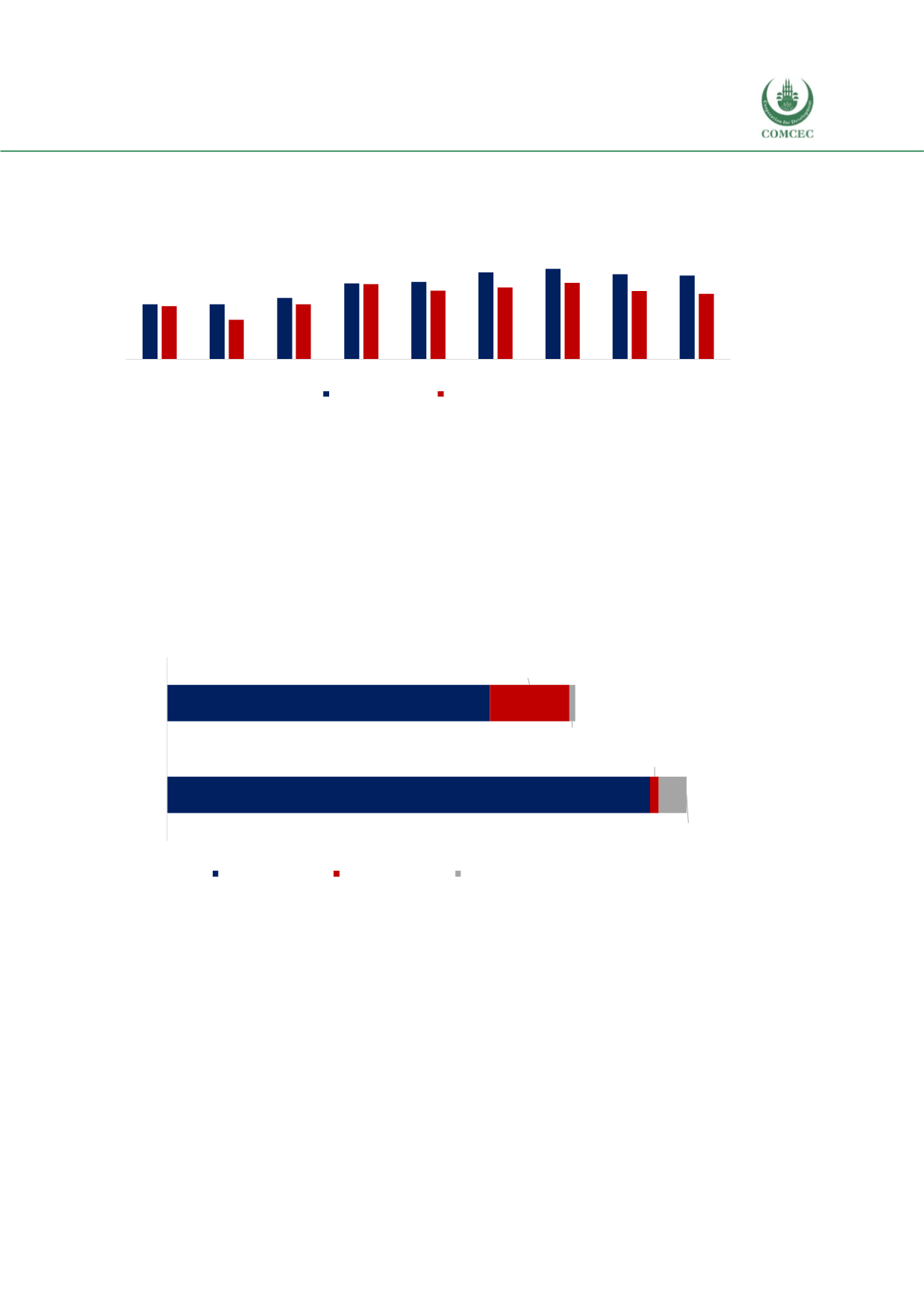

Reviewing Agricultural Trade Policies
To Promote Intra-OIC Agricultural Trade
73
agriculture, Turkey has a trade surplus in agricultural products. Export of agricultural products
were 17.1 billion USD, and imports of agricultural products were 13.4 billion USD with a trade
surplus of 3.7 billion USD in 2016 (see Figure 4.1).
Figure 4. 1 Agricultural Exports and Imports, Billion USD, Turkey
Source: CEPII BACI, Eurostat RAMON, UN Comtrade, UN Trade Statistics, and authors’ calculations
Within subgroups of agricultural products,
Exports of agri-food products were 15.9 billion USD and imports of agri-food products
were 10.6 billion USD with a trade surplus of 5.3 billion USD in 2016.
Exports of agricultural raw materials were 289 million USD and imports of agricultural
raw materials were 2.6 billion USD with a trade deficit of 2.3 billion USD in 2016 (Aydın
and Aydın, 2018).
Exports of fish products were 906 million USD and imports of fish products were 194
million USD with a trade surplus of 712 million USD in 2016 (see Figure 4.2).
Figure 4. 2 Agricultural Exports and Imports, Product Groups, Billion USD, Turkey, 2016
Source: CEPII BACI, Eurostat RAMON, UN Comtrade, UN Trade Statistics, and authors’ calculations
Trade policies in Turkey in terms of preferential trade agreements are influenced by the
European Union policies since Turkey is in Customs Union (CU) with the EU. However, since the
cu excludes agriculture, Turkey can design its agricultural trade policy independently.
Interestingly, the World Bank, in its 2014 evaluation report of the EU-Turkey Customs Union,
suggested widening the customs union to cover agriculture (World Bank, 2014). Currently,
turkey has free trade agreements with 21 countries worldwide including 8 OIC member
countries (Albania, Egypt, Jordan, Malaysia, Morocco, Palestine, Syria, and Tunisia) (T. C. Ticaret
Bk., 2018) those agreements cover, partially and preferentially, both industrial and agricultural
products.
In its 2023 Vision for Agriculture, it is stated that Turkey aims to become a country that can feed
its population with sufficient amounts of safe and high-quality foods, being a net exporter of
11.2
11.3
12.5
15.5
15.8
17.8
18.5
17.4
17.1
10.9
8.1
11.2
15.3
14.0
14.7
15.6
13.9
13.4
2008
2009
2010
2011
2012
2013
2014
2015
2016
Agircultural export
Agircultural import
Agri-food products;
15.9
Agri-food products;
10.6
Agri-rawmaterials; 0.3
Agri-rawmaterials; 2.6
Fish products; 0.9
Fish products; 0.2
-
2.0
4.0
6.0
8.0
10.0
12.0
14.0
16.0
18.0
Export
Import
Agri-food products
Agri-rawmaterials
Fish products
















